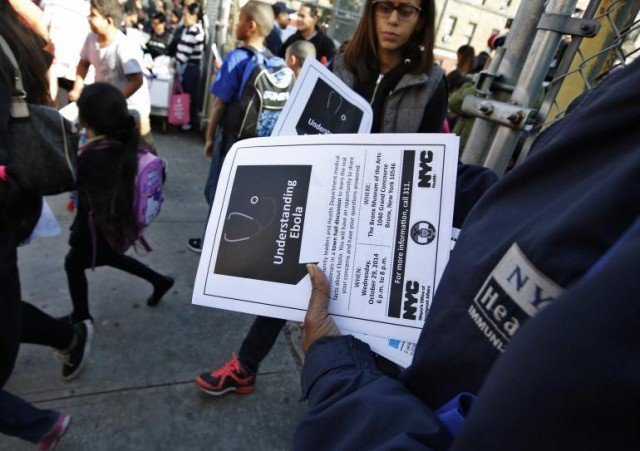
Medical staff returning from treating Ebola patients in West Africa will be actively monitored but not placed in quarantine under new US health rules.
The federal guidelines came after nurse Kaci Hickox was put in isolation in a tent in New Jersey, a decision condemned by UN Secretary-General Ban Ki-moon.
Meanwhile, Australia has been criticized for a West Africa visa ban.
The current Ebola outbreak in West Africa has infected more than 10,000 people and killed almost 5,000.
People are not contagious until they develop Ebola symptoms and the UN Secretary-General’s spokesman said “returning health workers are exceptional people who are giving of themselves for humanity”.
“They should not be subjected to restrictions that are not based on science.”

Quarantine decisions in the US are made in each state, and the new guidelines from the federal Centers for Disease Control and Prevention (CDC) were immediately rejected by the governor of New Jersey.
The CDC said it was “concerned about some policies” being put into place.
New Jersey is one of three states with a 21-day quarantine for all health workers who have had contact with Ebola patients.
New Jersey Governor Chris Christie defended the mandatory isolation imposed on Kaci Hickox, who was quarantined when she returned home from Sierra Leone.
Chris Christie added: “That’s what we will continue to do.”
Kaci Hickox, who had no symptoms, has now left hospital in New Jersey for her home in Maine, where health officials say she’ll be quarantined for 21 days.
The nurse said she was made to feel like a criminal when she arrived back in the US on October 24.
Separately, Australia, which has had several scares but no recorded case of Ebola, has been criticized by Amnesty International for taking a “narrow approach”.
A spokesman told Reuters that the ban made no sense from a health perspective but ensured that vulnerable people were trapped in a crisis area.
CDC director Dr. Tom Frieden said workers considered to be at high risk or some risk would be required to be “actively” monitored for symptoms for 21 days.
Those at highest risk are anyone who’s had direct contact with an Ebola patient’s body fluids.
Even if they have no symptoms, they should avoid commercial travel and large public events, Dr. Tom Frieden said, adding that voluntary quarantine was enough.
More than 10,000 people have contracted the Ebola virus, with 4,922 deaths, according to the World Health Organization’s latest figures.
All but 27 of the cases have occurred inside Sierra Leone, Liberia and Guinea.
The Ebola virus spreads through close contact.
Health officials say stopping the spread of the disease in the areas hardest hit by the outbreak will prevent Ebola’s spread to other countries.
[youtube dR4Ni71zpo4 650]
[youtube XpqcWeBrK1Y 650]